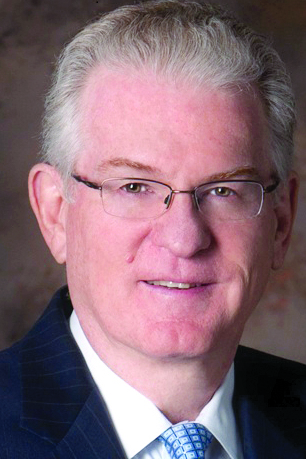
OKLAHOMA CITY (BP) — The social ferment and accompanying eruption of violence that has plagued our nation in recent days threatens to tear the fabric of peace, unity and freedom that we yearn in our nation.
The blame can go in multiple directions. Analyzing causes and pointing fingers are easy paths to follow — finding solutions is much harder.
I am not a politician or social scientist. As a white American, I do not think it is possible for me to understand the depths of the fears and anger that many African Americans feel today. Nor can I fully appreciate, because of lack of knowledge or experience, the enormity of the pressure on police officers.
What I do know is yelling at the problem or at one another is not the answer.
While politicians and other leaders can set a tone of love instead of hate, and reconciliation rather than pushing people further apart, they cannot make reconciliation or love happen. Words are important, but in the end, it is individual action that matters.
Many people believe that the national government should solve the problem and eliminate every speck of racial discrimination and racial division. Laws can help, and have helped, but laws do not change the hearts of people.
The racial divide, especially between white and black America, is an issue of the heart, and is also an issue that national government or organizations cannot fix. This racial divide begins with individuals and is solved from the neighborhood to the national level, not vice versa.
I also believe that racial reconciliation should begin with local believers and churches seeking to bridge the racial divide at a much deeper level. Symbolic action may help for a short season, but it will not resolve prejudice, hate and disrespect.
Jesus set the pattern for us. The Good Samaritan story was for just such a time as this. Jesus’ antidote for hate and racial divide was action, not words. The Good Samaritan did what religious folk would not do. He crossed the racial and hate-filled divide to show love and compassion.
Maybe, just maybe, this is the answer for us.
What does the example of the Good Samaritan mean for the local church and for us as individual followers of Christ? I think it means we face our prejudices and set aside all hatred and disregard for people whose skin is darker or lighter than our own. We should move toward people who are unlike us and purposefully seek to develop personal relationships built upon mutual respect and genuine love for the person of a different race. We should also recognize each person as a special creation of God, bearing His image as do you.
We must move forward from the individual standpoint to focus on the local church. The local church must step forward as a force for racial reconciliation. The cry for racial reconciliation must rise from the church, not secular government or organizations.
Pastors, black and white, must move toward one another, fellowship together, pray together, seek to understand one another, and many times weep together.
We do not need a quick fix or some kind of “made for television” services or acts so much as we need day-to-day interaction and displays of love and respect. No short-term solutions are adequate. We, as the church, need to work toward long-term eradication of hatred and bigotry.
Dr. Martin Luther King, Jr. was right when he said that Sunday morning at 11 o’clock is the most segregated hour of America. This is true on both sides of the racial divide. Moving forward, black churches and white churches ought to be Christ’s churches where all people are accepted and loved. I long for the day when our churches are multi-racial, not primarily identified by the color of our skin.
While I have focused on the Anglo/African American divide, we are all aware the division does not stop there. Questions remain: “Will Christians and the local church become Good Samaritans or Levites and priests? Will we work to erase the racial divide by showing love and acceptance to all and purposefully build relationships with those of another race?”
The ground at the foot of the cross is level. The Gospel is for all people, so the church should be also.
















